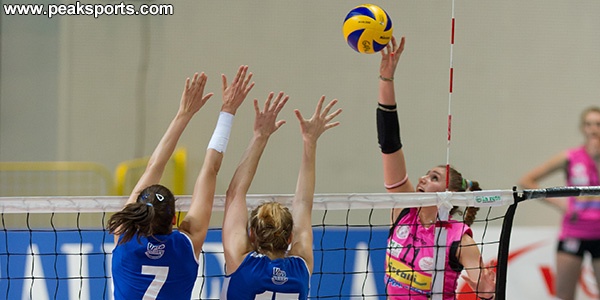
Performing with an Optimistic Mindset
Do you set high standards for your performance? Do you believe that setting the bar extremely high leads to performing your best?
Let’s look at this question in reverse. If your standards are low, will you perform at a high level?
Of course not. Low standards will lead to low effort. If you have low standards, you will not put in the work to improve your game. Thus, if you have low standards, you will under perform.
Now, let’s look at the opposite. Do you think having excessively high standards leads to peak performance? Is never being satisfied the key to motivating yourself to greater heights?
Interestingly, excessively high standards or expectations lead to frustration and under performance.
Never being satisfied or happy with your performance is a characteristic of perfectionism. Perfectionism is an unattainable ideal that leads to negative emotions and less confidence.
If you have excessively high standards or demand perfection, you will always be frustrated with your level of performance.
No matter if you win or lose, you will point out every mistake. When you nitpick every detail of your performance, you will become frustrated. Dwelling on all your faults and mistakes leads to low confidence and frustration.
Let’s clarify the difference between high standards and excessively high standards. Having high standards is the pursuit of improvement, not a demand for perfection.
When you have high standards, you will be more objective in your evaluation after a performance. You understand you can learn from both the positive and negative aspects of performance.
Recognizing your strengths keeps confidence high while still maintaining motivation to work on your game.
Let’s examine having high standards with the following example. Fran Kirby is an English professional soccer player who plays as a forward for Chelsea and England’s National Team.
Even after a game where she made three assists and led Chelsea to a victory, Kirby didn’t appear satisfied with her play.
After the game, Chelsea manager Emma Hayes commented on Kirby’s mindset and high standards.
HAYES: “Fran’s standards are through the roof, so she’s always frustrated. That’s the measure of her and why she is as good as she is. She thinks there’s always room to improve.”
Here lies the misconception about standards. Is Kirby actually frustrated, or does she believe she still can grow her game by working on a few things?
A good measuring stick to determine if your standards are excessively high is how much you judges your game during every play
If you dwell on mistakes and this causes a loss of focus in the moment, your standards are probably too high and need to be re-evaluated.
Re-Evaluating your Standards:
If you’re critical about your performance after games, ask yourself the following questions:
Am I demanding perfection from myself? If so, why do I need to be perfect? What do mistakes say about me as an athlete or person?
Recognizing self-sabotaging expectations and replacing with small objectives can help you have more fun and be less critical.
Related Sports Psychology Articles
- Self-Intimidation for Athletes
- How Stress Can Affect Sports Performance
- Pregame Stress and Anxiety: Athletes’ Mental Roadblock to Success
*Subscribe to The Sports Psychology Podcast on iTunes
*Subscribe to The Sports Psychology Podcast on Spotify
Download a free sports psychology report to improve your mental game!
Learn more about our one-on-one mental game coaching.
Relaxed Athletes
The ability to relax and play your game under pressure is what separates the winner from the loser in any competition. Champion athletes train hard in practice, are motivated for the right reasons, and are able to raise their game in crunch-time with two minutes remaining in the game..
Many athletes don’t even consider the importance of a mental pregame routine. Having a physical warm up is the easy part or preparing yourself to play. But you must have a pregame mental routine that helps you relax, focus, and be confident for competition.
A relaxed and confident performance begins in the mind! When you are mentally prepared to compete, you can have an optimal level of intensity AND poise!

